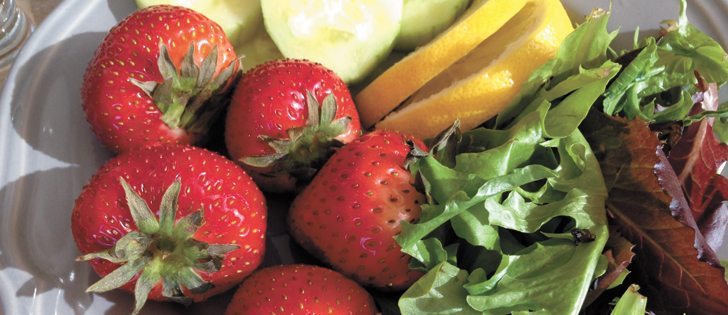It is officially summer and that means meals served outside from a grill or cooked over an open fire. Some of my most memorable gatherings involved eating around a picnic table.
Summer is also the ideal time to enjoy an abundance of fresh produce in season.
I have had to deal with headaches, overheating and full blown heat stroke. Our bodies must get enough water to function optimally especially in the heat of the summer. One way to overcome and avoid dehydration is by eating our water rather than only drinking it.
Read Also

Fuel rebate rule change will affect taxes and AgriStability
The federal government recently announced updates to the fuel rebates that farmers have been receiving since 2019-20.
For example, watermelon is more than 90 percent water and has the added benefit of vitamin C and lycopene.
Strawberries are about 91 percent water and are also good for our sun exposed skin. They contain minerals, antioxidants such as vitamins C and B3, believed to contain wrinkle fighting properties.
Cucumbers are 95 percent water and add fibre to the diet while celery is a good source of water and crunch on a hot summer day. Lettuce and greens contain about 90 percent water.
Mealtime salads are a staple in our summer diet. Greens can be prepared ahead of time and stored in the fridge.
Smoothies are a great way to replenish electrolytes. Try blending ingredients from your own refrigerator and pantry such as frozen bananas, vanilla Greek yogurt, cow’s or almond milk, frozen yogurt or ice cream. Add kale and a small handful of crushed ice if desired.
The banana is a source of potassium and magnesium that can help replenish fluids. Yogurt is about 85 percent water, while the Greek yogurt is a good source of protein, probiotics, calcium and B 12.
Adding in a splash of plain coconut water will also help even out electrolytes after a day in the sun.
Lemons are another option for rebuilding electrolytes.
Reach for sun blocks with zinc oxide or titanium dioxide that bounce light off the skin.
For after sun care, always read the product labels and avoid the following; sulfates (which will irritate and dry you out more); parabens (preservatives that will mess with your hormones)and perfume/fragrances (synthetic ingredients that make you smell good but add toxins to your system.) Look for products scented with essential oils only.
My recommendation is using a pure aloe vera cream without alcohol or gel from the aloe plant.
The destruction of coral reefs because of commercial sunscreens is a growing concern in many countries so the alternative may be to skip chemically laden sunscreens, stay out of the sun during the hottest part of the day or sit in the shade.
Sunglasses with ultraviolet rays protection are more than pretty and may help prevent cataracts later in life.
Jodie Mirosovsky is a home economist from Rosetown, Sask., and a member of Team Resources. Contact: team@producer.com.















